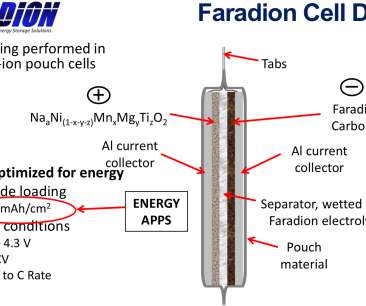Faradion and Phillips 66 to develop lower cost and higher-performing sodium-ion battery materials
Green Car Congress
FEBRUARY 26, 2021
Sodium-ion battery technology has an inherent advantage over other power-storage technologies because it uses low-cost materials that are sustainable and widely available. We’re pleased to put some of our resources into play with Faradion as it works to bring game-changing technology to market using our high-performing anode materials.











Let's personalize your content